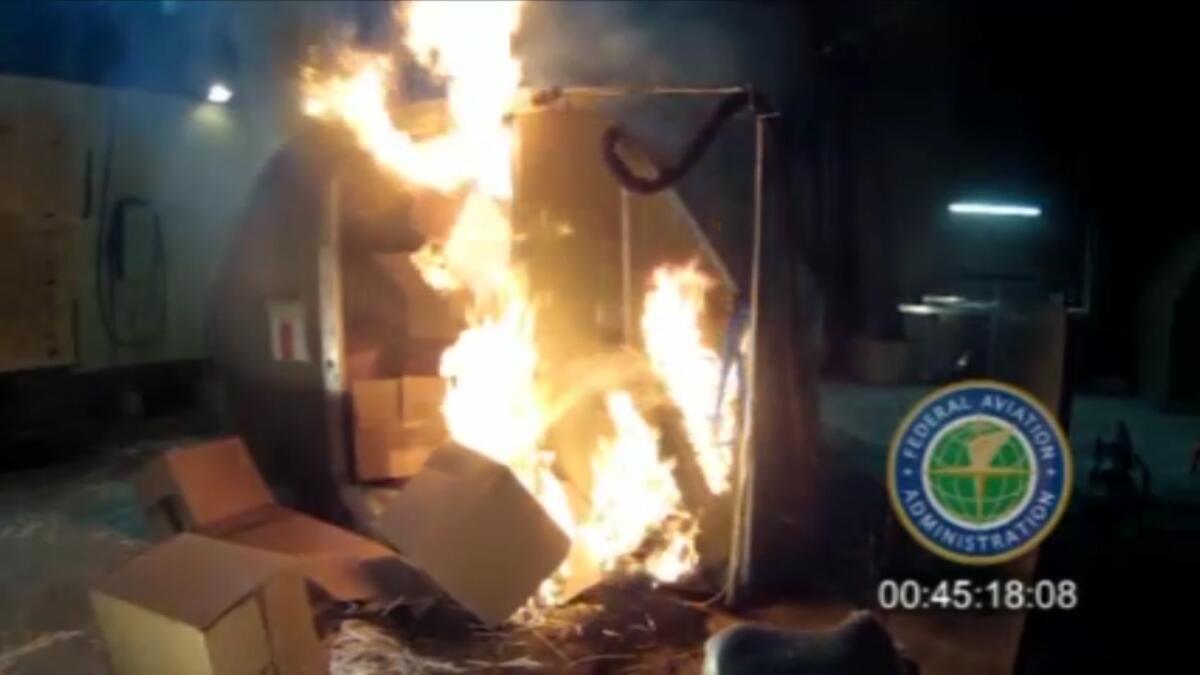More airlines impose restrictions on smart bags with built-in lithium batteries

A growing number of airlines have announced restrictions on luggage with built-in batteries because of a potential fire hazard they may create in the cargo area of a plane.
Two of the world’s largest airlines, American and Delta, announced this month that bags with built-in batteries that cannot be removed will not be allowed as checked luggage starting Jan. 15. Since then, United, Southwest, Alaska and Hawaiian Airlines have announced similar restrictions.
The move comes amid growing worry that lithium batteries can ignite a fire in the cargo hold of a plane.
The Federal Aviation Administration has imposed restrictions on spare lithium batteries carried in the cargo area but has left it up to airlines to impose restrictions on larger batteries inside of electronic equipment, such as smart bags.
Smart bags have become increasingly popular with tech-loving travelers because the bags come with built-in devices that can weigh the bag, track its location using GPS and lock it remotely using a smartphone app. Some bags even include wheels and a motor so that travelers can ride the luggage like a scooter.
In response to the airline announcements, some smart-bag manufacturers are scrambling to assure potential customers that the batteries in their bags are safe.
Tim Ryan, chief marketing officer at Chicago-based smart-bag maker Modobag, told the Chicago Tribune that the batteries in his luggage are removable, but said his company may consider making batteries easier to remove in an upcoming line.
Another smart-bag maker, Bluesmart, said on its website that its batteries cannot be removed but still meet federal safety standards. Bluesmart said it plans to meet with airline representatives to try to get Bluesmart bags exempt from the restrictions.
Twitter: @hugomartin
More to Read
Inside the business of entertainment
The Wide Shot brings you news, analysis and insights on everything from streaming wars to production — and what it all means for the future.
You may occasionally receive promotional content from the Los Angeles Times.











